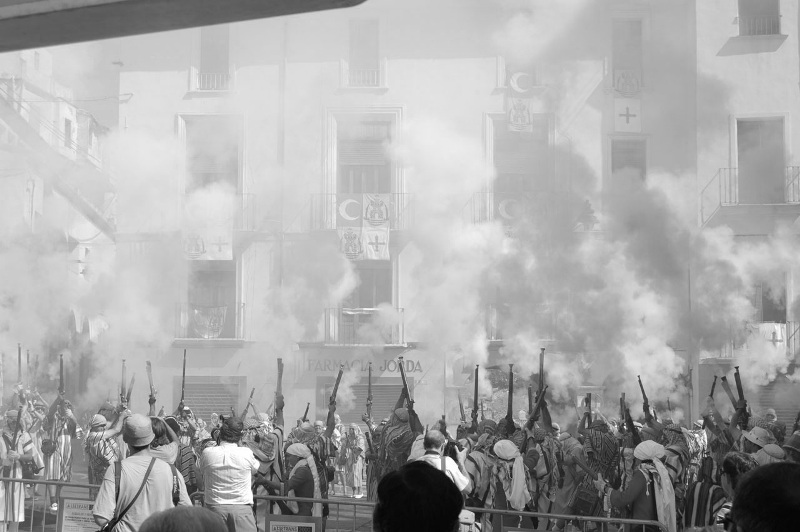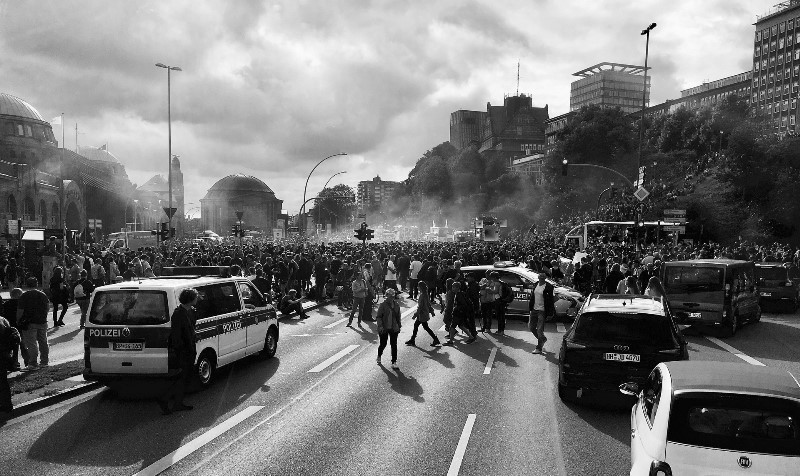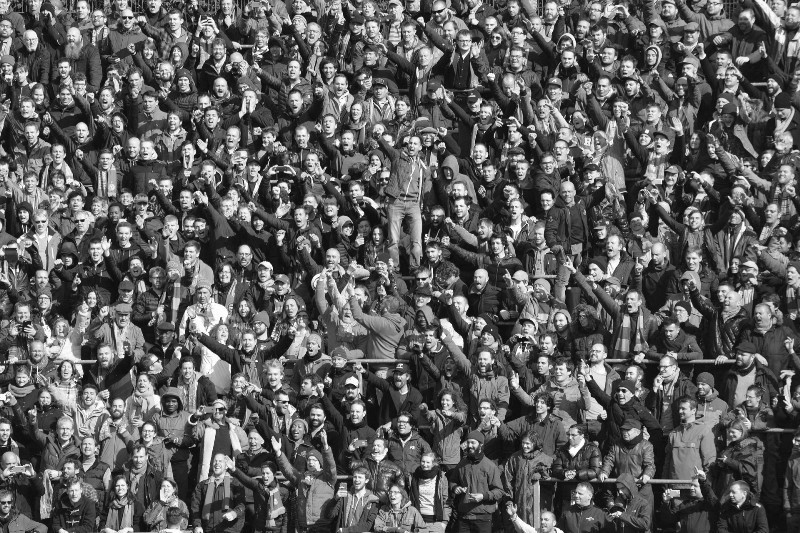Ochlocracy is a term that defines a certain form of political structure of the state, sympathetic to terror and unmotivated violence. Like many others, this term has come to us since antiquity. The definition of the word was formed by the ancient Greek statesman, military leader and historian (wrote the General History in 40 volumes) Polybius. In his opinion: “… Ochlocracy is a degenerated democracy and the worst of all forms of statehood.” Before him, such thoughts were expressed by Aristotle, who recognized the right to rule only for the monarchy and aristocrats. Aristotle also described democratic institutions in the most negative terms, without making a distinction between democracy and ochlocracy.
What is OCHLOCRACY – definition and meaning in simple words.
In simple words, Ochlocracy (ohlos – crowd, kratia – power, translated from Greek) is the domination of the “mob”, the kingdom of the crowd, in which violence dominates. The main law under ochlocracy is the absence of all kinds of laws, and instead of them, only irrepressible desires of the human masses.
Aristotle, In his work “The State”, trying to be objective, did not use extremely harsh expressions, he described this form of government as: “Ochlocracy is the power of the crowd” or “Ochlocracy is the power of the rabble.” But even a moderate characterization is enough to understand the essence of the phenomenon and the attitude of the philosopher to it:
… the power of the crowd is not capable of managing, making deliberate, balanced, intelligent and rational decisions that take into account the common good. An internecine squabble becomes inevitable, in which the best and educated with ridiculous constancy are removed from power and, as a result, destabilization, and chaos in the state are coming along. And ahead is the tyranny and despotism of the most cynical and dexterous group of demagogues.

Signs of Ochlocracy.
Ochlocracy is the domination of the street, the mob, and certain political forces that provoke the mob and at the same time manipulate it. The crowd responds to the cheapest bait and populism. The leaders are guided by the most primitive cries and demands of the uncontrolled crowd.
This sociopolitical phenomenon characterizes:
- Anarchist, anti-state elements of mass demonstrations;
- destroyed the old way of life;
- all moral values, ethical norms and rules are perverted;
- social base – lumpen and outcasts, criminals and hooligans;
- leaders provoke the street, call for riots, violence, and riots;
- the street, as expected, responds to calls – violence against a person, lynching, and riots become a constant phenomenon;
- the power of the period of ochlocracy is characterized by incompetence, unpredictability and slight madness;
- people in troubled times lost faith in the ability of the ochlocratic authorities to solve the social and economic problems of society and the state;
- ochlocracy – the power of “bad guys”, and therefore they declare themselves the best;
- “bad guys”, easily gather in gangs and create violence without mental anguish;
- truly the best people with a conscience, intelligent and highly educated – are killed, expelled and banned.
- the time of ochlocracy is short: it is a transitional period of bad times, between the bygone order and the coming organized power.

Causes of Ochlocracy.
In difficult times for the state and society, at turning points in history, favorable conditions arise for the power of Okhlos. In this case, two main forms of ochlocracy crystallize:
- Spontaneous;
- Managed and directed.
Catalysts for discontent and the start of protests can be:
- a natural disaster with many casualties, loss of housing, property, on the one hand, and inaction of the authorities, on the other;
- war and military failures;
- hunger and lack of food;
- epidemic, pandemic;
- a significant drop in the standard of living, too high taxes, the impoverishment of the masses against the background of the richer upper classes.
The proportion of spontaneous actions is relatively small, and if all cases are investigated, it turns out that the directed management of people’s discontent was present everywhere.
Sometimes the protests were organized by the authorities themselves with a multitasking goal:
- divert the attention of the lower classes from other pressing problems,
- “let off steam”
- identify and eliminate the most active troublemakers, and then further intensify repression.
In most famous protests, everything went exactly according to the script:
Revolutions are made by romantics who are pure in soul, but scoundrels use the results of it.
Ochlocrats are political adventurers who successfully rode the wave of civil anger and successfully rolled where they needed to: to power, wealth and other benefits.

Ochlocracy: examples from history and modernity.
- The Byzantine Empire was constantly shaken by riots and uprisings. But the Nika uprising (532) in Constantinople, during the reign of Emperor Justinian, was especially imprinted in the memory of contemporaries. One of them wrote: “… it seemed that the empire was on the verge of death.” Thousands of people died in street battles, but the rebellious commoners, regardless of the losses, destroyed the three legions of the emperor, and he was left without troops in the city, nothing – except for German mercenaries – horse archers and his personal Palatine Guard. Half the city burned down: the temples, palaces, and villas of the nobility burned, the plebs robbed the houses of the rich, and the imperial mercenaries robbed the temples. The emperor agreed with the senators who formed the opposition and led the crowd – they betrayed. During the suppression of the uprising, 35 thousand people were killed. The people opposed the arbitrariness of imperial officials and ruinous taxes (in case of non-payment, the entire family was sold into slavery!).
- The best example of modern ochlocracy is Nazi Germany. Primitive slogans such as: “Germany, wake up!”. Adolf Hitler’s hysterical speeches about who is to blame, and now they are your enemies – I call them. Next, the Nazis burn books in bonfires. And now it’s Kristallnacht, and the sidewalks of always such neat German cities are completely covered in broken glass, and the synagogue blindly looks through empty windows. And Bertolt Brecht, Einstein, Remarque, Feuchtwanger, Marlene Dietrich, Heinrich, and Thomas Mann leave their beloved Germany.

Ochlocracy and democracy – so what is the actual difference.
In fact, democracy in Ancient Greece is not the rule of the people. Demos is a people with civil rights, and this is far from all: slaves, the poor, freedmen (former slaves), women and foreigners (those who were born outside of this policy) had no rights. That is, the lower classes, the so-called ohlos, did not have civil rights.
Ochlocracy, which is a “distortion” of democracy, no political system calls itself. Nevertheless … In modern society, there are no more qualifications and restrictions. With universal suffrage, everyone has civil rights. That is, democracies, in its original ancient Greek form, no longer exist! Modern civil societies are mass societies where democracy is very closely intertwined with aspects of ochlocracy.




